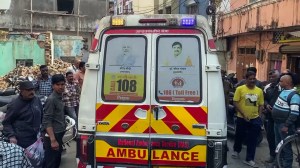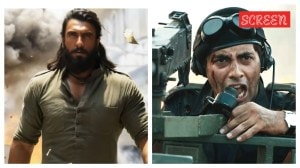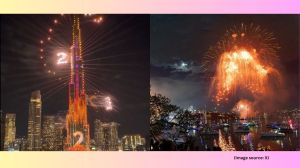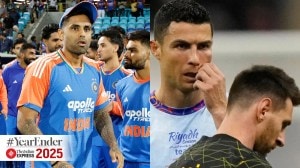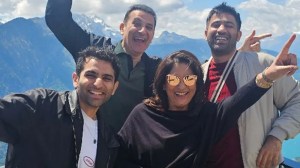Old town, new aura
Approaching Kaiserslautern, and surveying the town from the station, it appears like one of the feeder towns for the hill-stations in India. New Jalpaiguri is the obvious parallel, with the hills in the background and the hint of forests in the air.

Approaching Kaiserslautern, and surveying the town from the station, it appears like one of the feeder towns for the hill-stations in India. New Jalpaiguri is the obvious parallel, with the hills in the background and the hint of forests in the air.
Yet K-Town 8212; as the Americans mercifully abbreviated the name to 8212; is more than a conduit to the Palatinate forests. It lives, breathes and dreams football. And the reigning deity is Fritz Walter, captain of the first West German team to win the World Cup, back in 1954. The local stadium, home to FC Kaiserslautern and venue of Monday8217;s match, is named after him, and there is a bronze bust in his memory at the main entrance.
Indeed, Fritz Walter isn8217;t just a local legend; he is a national hero and one of the four 8220;honorary captains8221; of the German team along with Beckenbauer, Seeler and Matthaeus.
That 1954 win has gone down in legend for two reasons. First, the 8220;Miracle of Berne8221;: Germany were the underdogs in that final, the overwhelming favourites being the Mighty Magyars of Puskas, Kocsis, Hidegkuti, yet Walter8217;s team pulled it off. It8217;s here that the Germans began their trend of upsetting the form-book in World Cup finals they did it again in 1974 and 1990.
Second, and perhaps more important in the national context, that win 8212; nine years after the end of World War II 8212; finally allowed Germans to hold their heads high again.
German football owes a huge debt, then, to Fritz Walter and Kaiserslautern, which supplied five players to that national team including Fritz8217;s brother Ottmar; the brothers are together in perpetuity because Fritz8217;s bust is at the gate named after Ottmar. There is a feeling that this history was becoming a bit of an albatross around the neck of German football; notoriously resistant to change, the men in suits would shake their heads at any disagreeable notion and say, 8220;Fritz wouldn8217;t approve.8221;
That aura is slowly being erased by Juergen Klinsmann in his radical overhaul of the footballing system and it8217;s probably more than a coincidence that Germany have had no matches scheduled at K-Town. Not that the locals seem to care; their life revolves around FCK, even though it8217;s currently languishing in the second division. Indeed, there is something different about this stadium to the other pretty, or grand, or dressed up arenas hosting this tournament. Maybe because it has character; the steps and pathways wind up and down the hillside, defying FIFA8217;s rigid insistence on uniformity.
Maybe it8217;s the people. When this reporter approached the help desk for directions to the Walter bust, one of the volunteers took me along. And through the half-hour it took to get there and back, via rigid FIFA security checks and detours, Kerstin spoke only football. About how this club was part of her life, how her grandfather and father had been supporters, how proud they are of local boy Miroslav Klose, how he left against his wishes because the club needed the money. That she didn8217;t mention Michael Ballack, who played a couple of seasons here, is telling.
Then the penny dropped. This is a local club, full stop. A vanishing concept in the age of globalisation and flat worlds, when you live in Agra and support Arsenal because it8217;s the team of the moment. Kaiserslautern isn8217;t Germany8217;s team of the moment, it is years from winning the big trophies. But a day spent here shows that in football, maybe in sport itself, one doesn8217;t need to win; one just needs to take part, and take pride in taking part.
- 01
- 02
- 03
- 04
- 05









